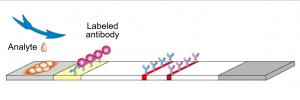A communications service is drawing keen attention to the Russia-Ukraine war that started in late February 2022. It is Starlink, the main subject of this article. In modern warfare, the importance of communication is growing day by day, so one of the priority targets to destroy in the event of war is communications facilities or communications networks. Communications is important in war because it is used not only for military purposes but also for communicating information to the people at the government level, communicating with each other through SNS, and sharing war situations. If communication is blocked, people will become anxious because they don’t know the progress of a war situation, which can lead to the loss of resistance. The most important thing is that the government can’t properly find refugees or emergencies, which can lead to a surge in civilian casualties from the war.
First of all, Starlink is a new concept satellite Internet service called a satellite internet constellation. Satellite internet constellation is the provision of Internet connections around the world by launching Internet-enabled satellites in large quantities in low orbit. In short, unlike the mobile communication services that we presently use, which provide Internet services to users by laying network infrastructures on the ground, Starlink intends to provide Internet services through satellites launched into space. Of course, there was no low orbit satellite-based Internet service before Starlink. But these services are at an altitude of 36,000km in the geostationary satellite. This is why, despite the advantage of being able to receive stable communication and broadcast signals, it was expensive and slow, so that the number of users of this service was limited to a very few. To solve this problem, Starlink provides Internet services continuously and with as many small Internet satellites as possible in low Earth orbit. Specifically, Starlink aims to launch 42,000 small Internet satellites into a low orbit of 328 to 580km, of which about 2,200 have been launched via SpaceX's Falcon 9 rocket and are conducting pilot services in the United States, Ukraine, the United Kingdom, and Australia.
At this point, you may wonder why so many satellites are needed for Starlink's service. The reason is that low-orbit satellites have the advantage of low latency, or signal delay, and being able to be manufactured at a low price, but have the disadvantage of reducing the area covered by satellites. Therefore, Starlink is trying to solve its shortcomings by launching a huge number of satellites. Looking more closely at this from a technical point of view, Starlink's small Internet satellite move in cluster form, with thousands of satellites passing overhead, and then "handover" the signal to the incoming satellite when the Internet-connected satellite is out of reach. In this case, 'handover' is the original mobile communications term for automatically tuning a signal to an adjacent base station to maintain a continuous call or Internet connection when moving out of the area of the base station being serviced. When these satellites send Internet signals, users on the ground receive signals through small antennas and can use the Internet through modems and Wi-Fi routers. Of course, they can use the Internet without existing optical networks or base stations.
What are the advantages and problems of Starlink? As mentioned earlier, Starlink can enable the Internet even if there is no network infrastructure on the ground or at sea. This can be used as an alternative to existing networks in situations where network infrastructures are destroyed due to disasters or wars. Also, it can ease the digital divide by offering cheaper services.
However, the problem that light pollution interferes with terrestrial observation of astronomical objects or astronomical phenomena while launching many satellites for Starlink service and that space waste will increase rapidly is becoming increasingly visible. Starlink's official website says "PRESERVING THE NIGHT SKY" and "KEEPING SPACE CLEAN," which seems like there is no need to worry at all, but unfortunately, this is not true. Starlink satellites travel in rows like trains, causing a so-called "Starlink Train" phenomenon that interferes with observation of astronomical phenomena and causes serious light pollution due to the sunlight reflecting from the satellites. Therefore, Starlink is looking for ways to alleviate this problem by coating satellites in dark colors or installing awnings to launch them, but there is still a long way to go. In addition, if 42,000 satellites are launched as planned, a huge amount of space waste will likely be mass-produced after the end of the satellite's life, and one of the problems is that there is no proper solution.
Despite the many problems, Starlink is receiving such attention because the possibility of future development is vast. Starlink is not only pushing to expand its Internet service network around the world but is also preparing to enable Internet access using transportation, such as cars, trucks, jets, and ships. In addition, in line with Elon Musk's plan to build a "space Internet," some predict that the Internet could be spread through Starlink to Mars and other places in space. This writer also dreamed of a world of "innovative communications" that Starlink will create in the future, seeing Starlink attract more attention due to the Russia-Ukraine war these days. Korea may not feel the need for Starlink because of its well-equipped network infrastructure, but in countries that do not have the same infrastructure, they are looking forward to this Internet service being established. In addition, Korea does not know when a disaster or war crisis will come, and we will look forward to the future of Starlink, which will enable the Internet in various places that have been practically impossible.
Choi Yongha kubabiba7613@naver.com
<저작권자 © 홍익대영자신문사, 무단 전재 및 재배포 금지>





